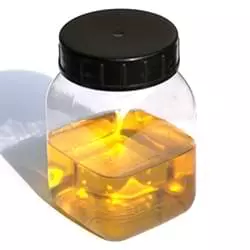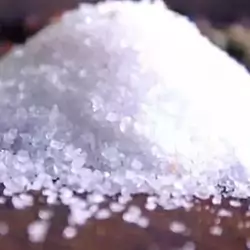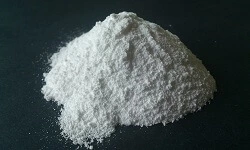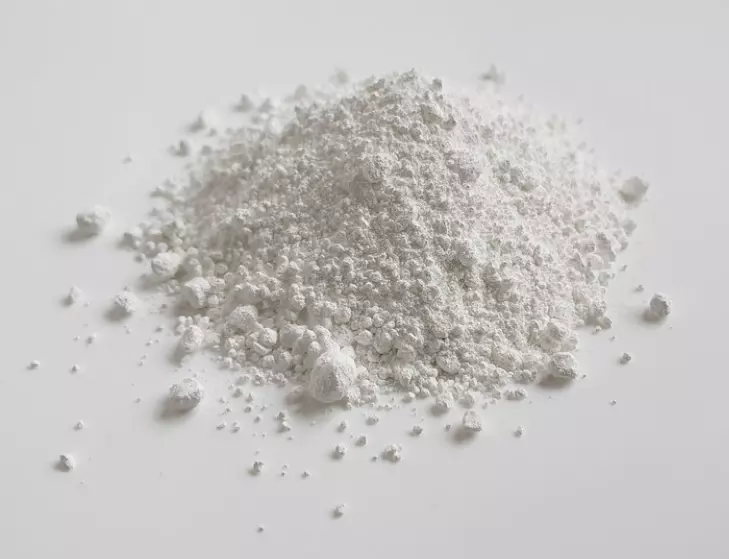Brief Overview
Sodium bicarbonate, also known as baking soda, is a chemical compound with the molecular formula NaHCO3. It appears white crystalline or powder and is easily soluble in water or mineral springs. Sodium bicarbonate occurs in nature through the mineral nahcolite or thermokalite. Sodium bicarbonate is an amphoteric compound that reacts with acid or base compounds. It can react with acetic acid to produce sodium acetate. It also reacts with base compounds such as sodium hydroxide to produce carbonates. Sodium bicarbonate will decompose to another stable substance, sodium carbonate, at a temperature above 149°C and also produce water and carbon dioxide as a by-product.
Manufacturing Process
Sodium bicarbonate can be manufactured using the Solvay process. Ernest Solvay first introduced this process in the 1860s by reacting sodium chloride with carbon dioxide and ammonia in water. Sodium bicarbonate produced from this process can be converted to another compound, such as soda ash (Na2CO3) or washing soda (Na2CO3.10H2O). The manufacturing process is shown below:
1. Manufacturing Sodium Bicarbonate
This process occurs by reacting sodium chloride with carbon dioxide and ammonia in water. Calcium carbonate is used in this reaction as the source of carbon dioxide, and by-product calcium oxide is used to separate ammonia from ammonium chloride. Another source of carbon dioxide is from dry ice. The reaction is:
NaCl(aq) + NH3(aq) + CO2(s) + H2O → NH4Cl(aq) + NaHCO3(s)
2. Extracting Sodium Bicarbonate
The product from the reaction at step 1 is sodium bicarbonate and ammonium chloride. At room temperature, both compounds are soluble. However, at a temperature below room temperature, ammonium chloride is more soluble than sodium bicarbonate, which makes it easier to extract the crystal from the solution. Another method of extracting sodium bicarbonate from ammonium chloride is by reacting calcium hydroxide with ammonium chloride. Products from this process are ammonia gas, water vapor, and calcium chloride in the liquid phase.
Food Industry
In the food industry, sodium bicarbonate is commonly used as a starter. Sodium bicarbonate reacts with a small amount of acid, such as vinegar or buttermilk, because it forms bubbles that will make the dough in the dough soft and bright. The sodium bicarbonate and acid mixture can be used as a rising agent as a yeast substitute. Another use of sodium bicarbonate is to produce effervescent salt and beverages.
Textile Industry
One of the most prominent uses of sodium bicarbonate is the treatment of wool and silk fabrics. In the textile industry, sodium bicarbonate is used in the dyeing and leather industries. Sodium bicarbonate is widely used in the textile industry for dyeing and printing operations. The leather industry also uses sodium bicarbonate as a neutralizing agent in the tanning process.
Disinfectants and Cleaning Industry
Sodium bicarbonate is used in cosmetics to control acid-base balance (pH adjuster). A small amount of sodium bicarbonate can be added to shampoo to create shiny hair and removes product residues. Sodium bicarbonate also can be used in the facial wash to remove pores and prevent acne. In disinfectants, sodium bicarbonate can exterminate roaches and ants in households.
Rubber and Plastic Industry
Sodium bicarbonate is used in rubber and plastic manufacturing as a blowing agent due to the release of carbon dioxide. Carbon dioxide is used to mold material made from rubber and plastic. The material structure can be adjusted by the amount of sodium bicarbonate added.
Detergent Industry
Sodium bicarbonate is an alkali substance and soluble in water. Sodium carbonate is used to control the pH in detergent when some acidic compounds enter the wash water. It can be used as a sodium carbonate substitute to create milder detergent products.
Other Applications
Another use of sodium bicarbonate is in the textile and leather industry. In the textile industry, sodium bicarbonate is used for printing and dyeing, as well as in the leather industry. Sodium bicarbonate is added to livestock food as nutrition and a buffering agent for the rumen in the dairy cow. It is used for wastewater treatment because it is an effective anti-pollutant agent. In addition, it is also used as one of the main ingredients for fire extinguishers.




